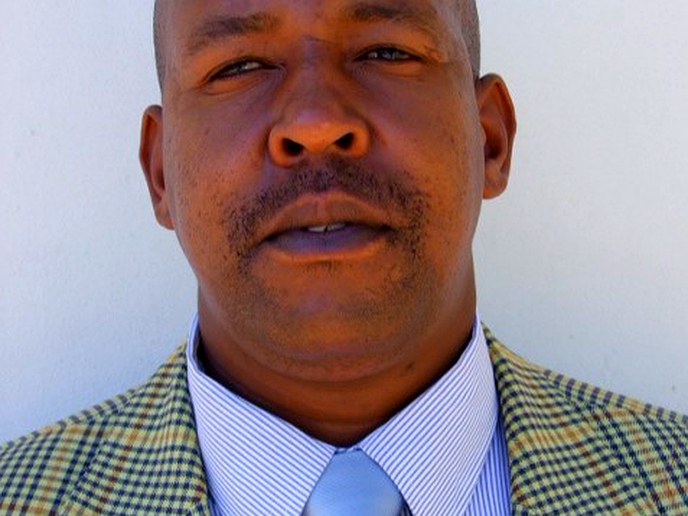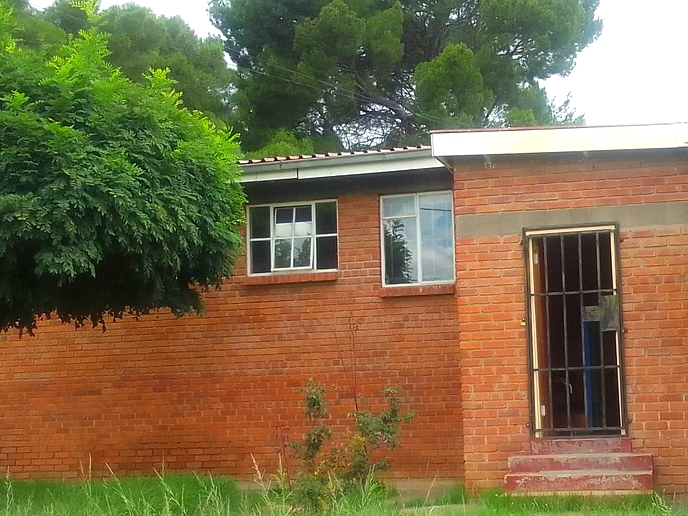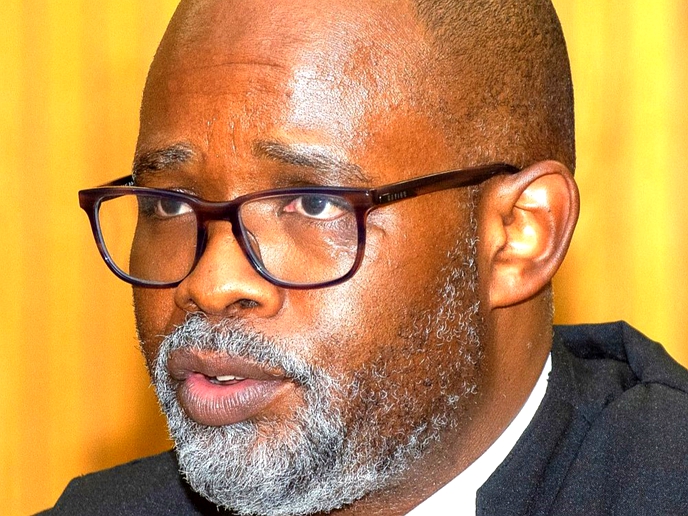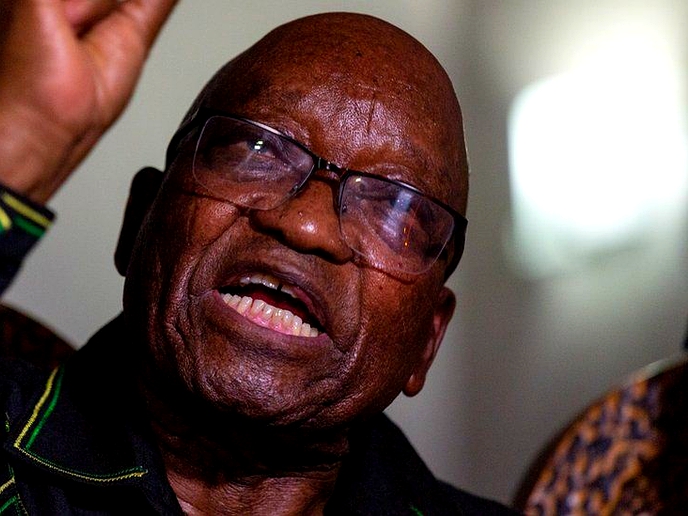JACOB Zuma reiterated late on Sunday night that he was not scared of going to jail for his beliefs, saying he was prepared to be a prisoner of his conscience, as he had done when he was incarcerated on Robben Island during apartheid.
news
July 5, 2021
STAFF REPORTER
14 min read
I am a prisoner of conscience - Zuma
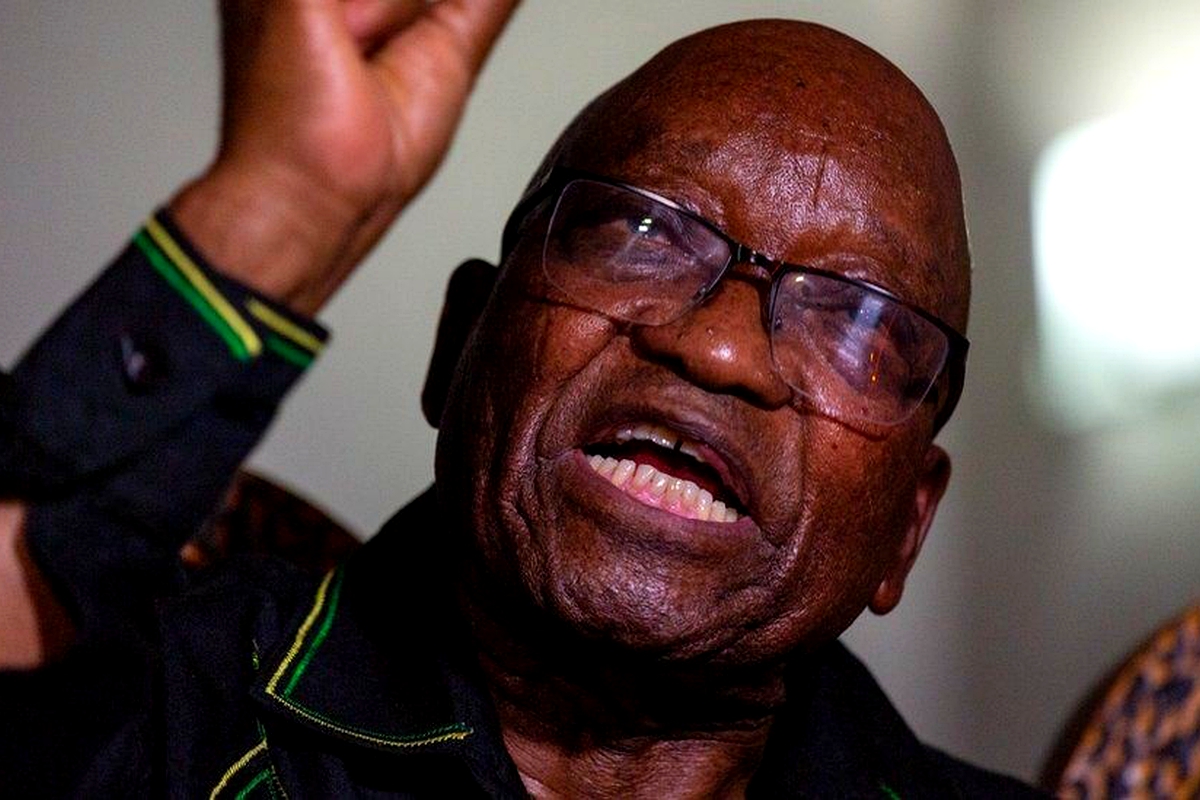
Former SA president Jacob Zuma
It was because of his family and comrades that he had decided to fight the “injustice” he was experiencing, former president Jacob Zuma said during a press briefing from his Nkandla home on Sunday night.
The former president was reading from a prepared statement while flanked by his senior counsel, Dali Mpofu and daughter Duduzile.
His eponymous foundation had labelled Zuma’s night-time press briefing an “address to the nation”, wording more commonly reserved for sitting presidents. The briefing, characteristic of Zuma’s time at the helm of the country, started two hours late.
“I really must be clear, I am not asking for sympathy, but justice,” Zuma read.
“My age and health condition and any other mitigating circumstances were not considered when the imprisonment was decided. My family and my comrades insisted that these injustices need to be exposed. If it was up to me, I would once again go to jail for my beliefs, as early as today, whether I come out alive or not.”
On Saturday, the Constitutional Court said it would hear Zuma’s eleventh-hour application for rescission of the judgment it had made on Tuesday. That majority judgment found Zuma guilty of contempt for not obeying the apex court’s order that he appear before the Zondo Commission to answer allegations about his involvement in State Capture.
Zuma was consequently sentenced to 15 months’ direct imprisonment, to be served at Durban’s Westville Correctional Centre. He is challenging the execution of the warrant of arrest — issued by the highest court in the land — at the Pietermaritzburg High Court on Tuesday, pending the outcome of the Constitutional Court hearing on 12 July.
Zuma was given until Sunday to hand himself over, failing which the SA Police Service would have three days in which to arrest him. It is this impending arrest that led to hundreds of supporters flocking to camp outside his Nkandla homestead, in violation of adjusted Alert Level 4 lockdown regulations, threatening violence if necessary, to “protect” the former president from arrest.
Zuma’s application to stay his arrest is being opposed by the Zondo Commission and the Helen Suzman Foundation. The other respondents in the matter, Police Minister Bheki Cele, National Police Commissioner Khehla Sitole and President Cyril Ramaphosa, have not opposed.
“Even murderers, serial killers, bank robbers and child molesters are granted their fair opportunity to give mitigation after conviction, before sentencing. In my case, a strange procedure was adopted by asking me for mitigation before I was found guilty of any crime,” Zuma continued at the briefing.
“It cannot be that [there are laws only reserved for Jacob Zuma]. Only Jacob Zuma is told that normal procedures are not applicable, only Jacob Zuma is told that appeal processes are too protracted. Only Jacob Zuma is asked to give mitigation before being found guilty. Only Jacob Zuma’s name is mentioned that the highest court in the land agrees to be a court of first instance in criminal proceedings.”
Zuma said that being jailed at his age, during the height of a pandemic, was equivalent to a death sentence. “The death sentence was declared unconstitutional in South Africa in 1995 as a result of my own sacrifices and those of millions of South Africans.” He had said much the same in his founding affidavit asking that the Constitutional Court rescind its judgment.
During the question and answer session, Zuma said that he had not yet received a Covid-19 vaccination.
He also said that there was something “very wrong” with the South African judiciary, and that he and his family had been more pursued and “harassed” during the democratic dispensation than during apartheid.
This was the former president’s second speech of the day. On Sunday afternoon, Zuma made an informal address to the supporters outside his homestead, from a mobile stage.
During that isiZulu address, he started by telling his followers — who were standing shoulder to shoulder, most without masks — that he was “as healthy as an ox”.
Visible policing had swelled by Sunday afternoon as the supporters continued to stream in by foot and car.
The group of Zulu regiments (amabutho) — their presence at Nkandla not sanctioned by the king — had also increased since Saturday. The men were cheered as they entered the homestead.
While making his informal speech, Zuma was joined by his legal team — including Mpofu — and some of his most vocal supporters, including Tony Yengeni and suspended ANC Secretary-General Ace Magashule.
It gave him “strength” and “new life” to see them, Zuma told the crowd.
“I am happy that you showed me that you won’t let anyone else be messed with like this in South Africa while you are still around. I would like to thank you all very much. Ever since the day of the verdict, until today I have seen all of you in your numbers. [Even though I am] a lowly nothing, you said I won’t be arrested for nothing.”
“I was starting to think that today I would be tussling with the police here when they arrived to fetch me. But when I saw you, I thought, ‘How would they ever get to me? How would they even get through?’ I would like to thank you for that.”
Not appearing before the Zondo Commission was a small issue that had been made into a big one, said Zuma.
“My friends, this problem that has angered so many did not need to get anyone angry in the first place. We had a small disagreement at first, that grew into something big. We disagreed and said that the judge [Zondo] who is the chair of the ongoing commission is biased towards me. It is my right by law, that I said I didn’t want to attend the commission with him as chair, but that if he is not chair I would be willing to go answer questions.”
Zuma walked out of the commission while under summons — placing himself in violation of the Commissions Act — in November last year when Zondo refused to recuse himself. In his application for rescission he said he left the commission because he had to take his medication, and did not return because of miscommunication between his legal team and the commission.
Former Public Protector Thuli Madonsela, who was responsible for the State of Capture report that led to the establishment of the Zondo Commission, said in her report that then-president Zuma should not decide who to appoint as commission chair. Instead, that should be done by the then Chief Justice, Mogoeng Mogoeng. Zondo was duly appointed as chair.
Addressing this, Zuma said: “That lady [Madonsela], who is very attractive, knew that Zuma could create his own commission of inquiry, but she took it upon herself to decide that the judge which would be chair should be a judge appointed by the Chief Justice. There is no law allowing that. The law states that a commission of inquiry is appointed by the president, not half of it, the whole thing.”
As stated earlier, Zuma has used his “medical condition” and the threat that Covid-19 poses to his life at his age, as reasons why he should not be imprisoned. But the 79-year-old marched shoulder to shoulder with Zulu regiments on Saturday, without a mask.
Mzwanele Manyi, the spokesperson for the Jacob Zuma Foundation, would not allow Zuma to address this during Sunday night’s “address to the nation”, when a journalist asked about it. Manyi said Zuma may not have had his mask on because of his “medical condition”, and that any illness he may have was a personal matter. He said the throngs of media covering happenings outside the homestead were also in violation of lockdown regulations.
Once Zuma had finished his informal address, Magashule spoke to the crowd, who had periodically been chanting his name.
“We are here to support president Zuma,” he said.
“Certain people” wanted to “finish the African National Congress”, disband ANC branches, and “disband and remove comrades”, said Magashule, presumably referring to supporters of President Cyril Ramaphosa and Ramaphosa himself, who have been accused by detractors of trying to eradicate disloyal factions.
Magashule told the cheering crowd that if members were suspended or structures disbanded, “you must still remain a member of the ANC. You must not go anywhere.
“You must still remain a branch and a region, because you were elected… they must not intimidate you, because the intention is to intimidate you.”
Being a member of the National Executive Committee did not mean one understood the ANC, he said.
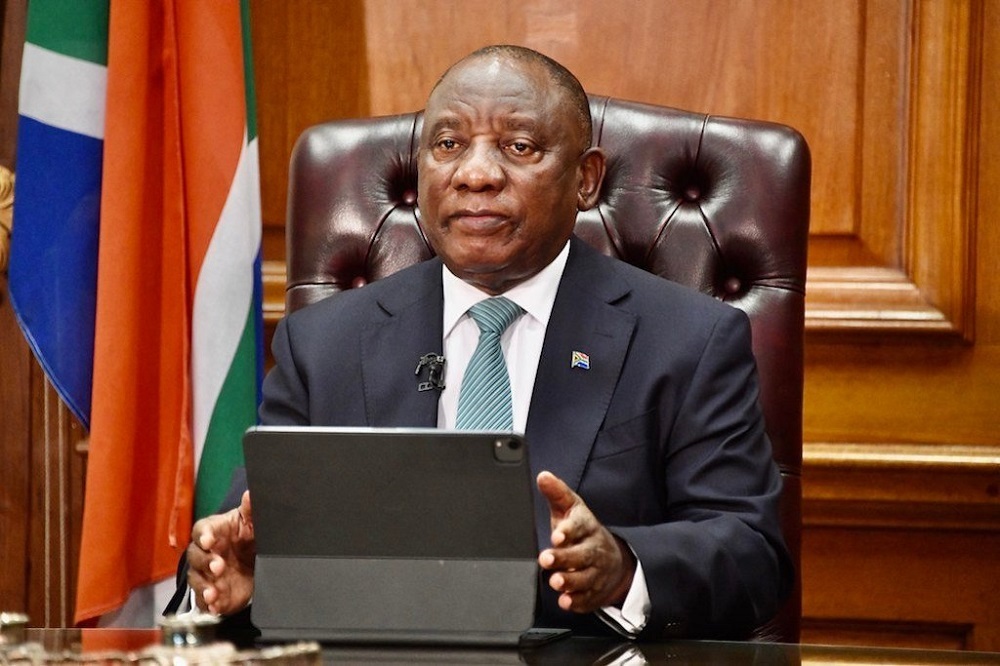
SA President Cyril Ramaphosa
Enjoy our daily newsletter from today
Access exclusive newsletters, along with previews of new media releases.
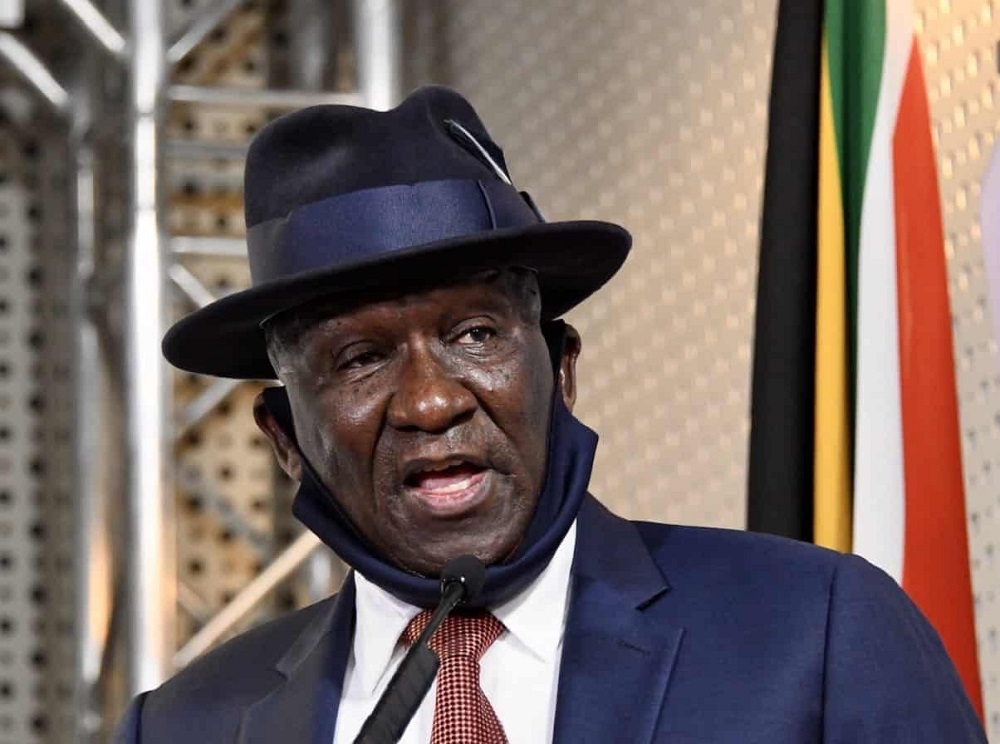
SA Police Minister, Bheki Cele
“Yesterday we had a wonderful political discussion with comrade Zuma. He said we must remain disciplined, no one must push us out. If you are amabutho, you remain a member of the ANC. Comrades, please remain resolute. Today you must tell them you are a branch. When they take you out of Parliament, you must tell them you are not going anywhere.”
Earlier in the day, Zuma’s eldest son, Edward, also told supporters to be disciplined, and not allow themselves to be “provoked by those who want to put Zuma in jail”.
“Let’s wait for them to provoke us first, then we will retaliate.”
The atmosphere outside Zuma’s residence since Tuesday — when small groups of supporters started moving in and out — was initially lively, but by Sunday afternoon, tension was thick, with small pockets of followers venting their anger when stopped by police.
“How big is your dick?” one supporter asked a SAPS member trying to question him at a roadblock. Others, obviously agitated, some drunk, called the police officers who had stopped them “crazy”, saying they did not care if they were shot.
One visibly drunk supporter, who was stopped at a roadblock about a kilometre from Zuma’s homestead, shouted at the police: “We know you were sent by Ramaphosa. You want to kill us like the people of Marikana. This is not Marikana. It’s only the uniform that says you’re police, otherwise you’re just like us. We are not scared of you!”
Another man said the officers had been sent by Police Minister Cele to “kill black people”. The supporters said they wanted to speak to Cele and his “friend” Ramaphosa.
KwaZulu-Natal’s police commissioner, Lieutenant-General Nhlanhla Mkhwanazi, told media at a roadblock earlier in the day that police had, in fact, been monitoring the situation outside the president’s homestead for some time, but had not made themselves visible.
Mkhwanazi stated bluntly: “Everyone who is part of the gathering at this stage is committing a crime.”
He said intelligence operatives were on the ground, and that police had “lots of cameras” that would be used during investigations to identify people and, presumably, prosecute them for violating lockdown regulations.
Amid all of this, most of the supporters that Daily Maverick spoke to remained adamant: Zuma would not be going to jail, and, they said; it was Ramaphosa who was behind the “plan” to arrest the former president. The supporters said they were prepared to “fight” and “die” for Zuma.
Ibutho (Zulu warrior) Baba Mkhanya told Daily Maverick that the Zulu regiments were at Nkandla because they were “shocked” at the courts “failing to do their job”.
“The charges against Nxamalala [Zuma], to the point where he was sentenced and the sentence itself is what we are against as Zulu warriors. So we thought we should come and protect him against the injustice happening to him.
“Even if he was guilty, I don’t see how they come to a decision to sentence him without him answering for himself. We’re not here to debate whether he is guilty or innocent, we are here because we don’t understand the court procedures used in this particular case. Like, how come Minister Bheki Cele has to arrest Zuma if he doesn’t present himself at the police station? Since when does a minister have arresting powers? That in itself tells us there is political influence here, so we came to defend one of our own.”
Lerato Mokobokheli said she had travelled from Gauteng because, “as comrades of the ANC we love Jacob Zuma, hence we saw the need to come and support him”.
The group she came with took the chance of driving from Gauteng despite it being prohibited during the adjusted Level 4 lockdown, because Zuma did not deserve to be in jail, she said.
“He is old, he does not deserve to be in jail, and of course he is a RET [Radical Economic Transformation] representative. We drove from Gauteng to KZN for about six hours, I think. We took that risk because we do believe he does need our support. We want to show him that he is not alone in this journey — we’re with him. That’s why we took the risk to come to this side.”
“Everything” that had happened to Zuma was a “political attack”, she said, because he had decided to fight “White Monopoly Capital”.
“He saw that the state was still in the hands of white people, so he did certain programmes that ensured that we as black people get empowered. Not all of us might have got to a point where we wanted to be, but he was a step in the right direction. So I believe that it’s all politically motivated because people are biased against Jacob Zuma. Everyone, even the media. The media is biased against Jacob Zuma, hence I believe the court is biased as well.”
Zuma was a “disciplined comrade”, said Mokobokheli. “I think he might hand himself in when the time comes, but, as we know, he did appeal the judgment, so we will have to wait and see what happens. I don’t want to speculate on what he will do, let’s wait and see.”
Mokobokheli said she was hoping for a positive outcome to the appeal, but she knew how the justice system worked, and it “is not fair at all”.
Black First Land First KwaZulu-Natal Chairperson Zizamele Dlamini told Daily Maverick that the organisation would not stop supporting Zuma.
“None of his cases have been fair. It’s all political. But it’s also another sign that you should never negotiate with the enemy. If we had not negotiated with the enemy in the first place, then this Dutch law would’ve been crushed and replaced with African law to deal with Africans. Now, Cele has to come here and arrest Msholozi [Zuma] while he failed to destroy the Dutch law which is the system that now attacks Msholozi.
“The chances that his appeal will be successful are very slim while we’re under this system. Only South Africans can help him. In fact, the whole of South Africa should be closed.” DM
Tailored for you



